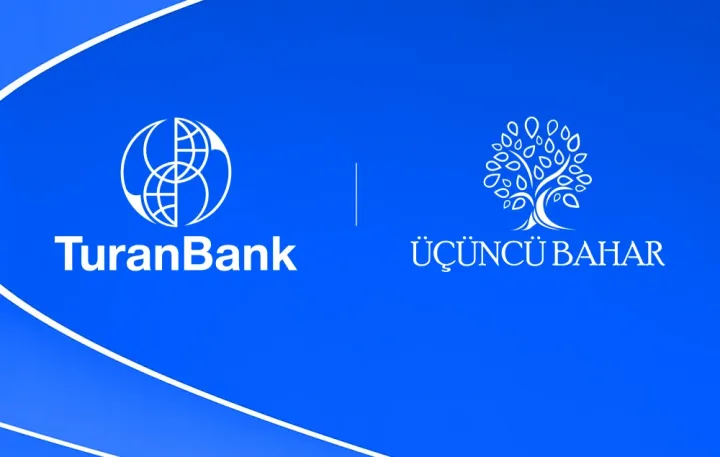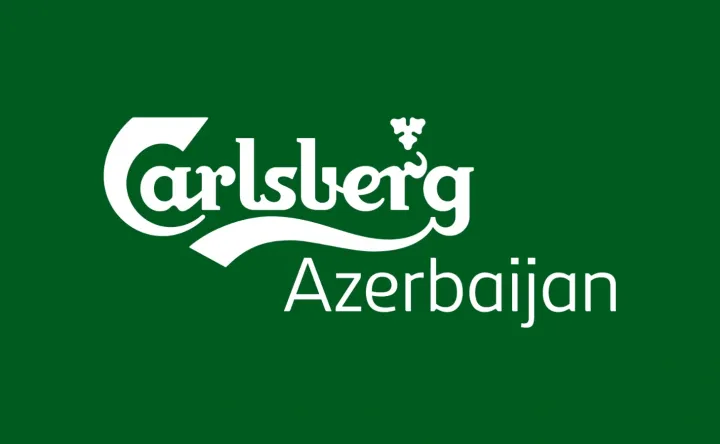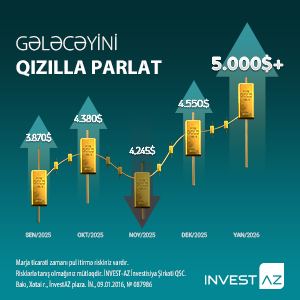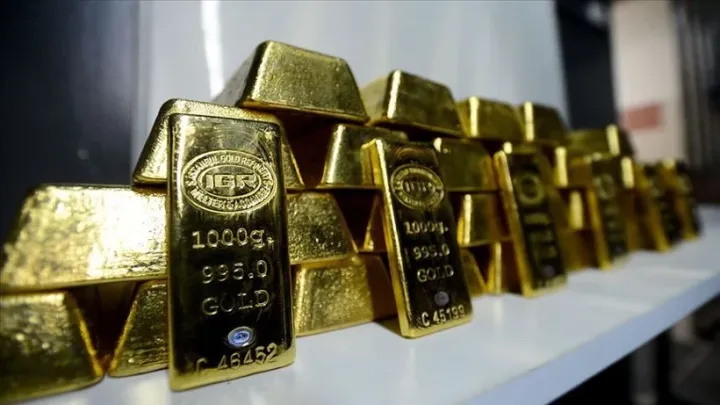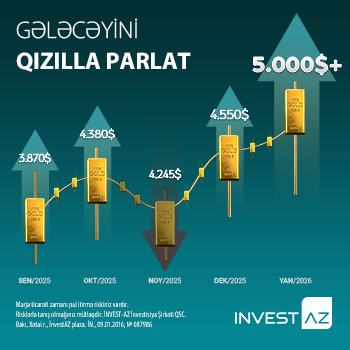SOCAR-ın reytinqi "Neqativ" təsdiqləndi
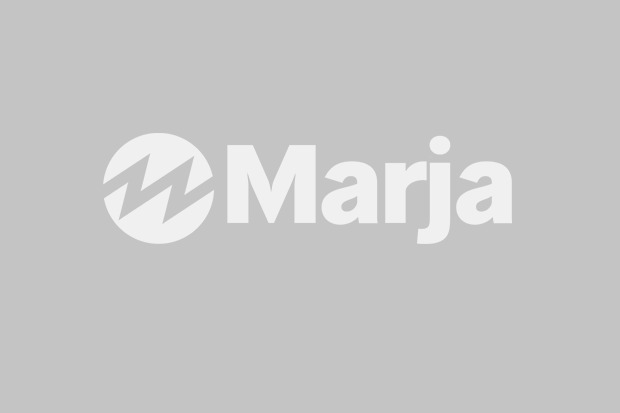
"Standard & Poor's" beynəlxalq reytinq agentliyi Azərbaycan Dövlət Neft Şirkətinin (SOCAR) korporativ kredit reytinqini yenidən "BB" səviyyəsində təsdiq edib. Reytinq üzrə proqnoz isə "neqativ" kimi qiymətləndirilib.
"S&P" reytinq agentliyinin rəsmi veb-saytında verilən xəbərə görə, SOCAR-ın təmin olunmamış prioritet borcları üzrə reytinqi də "BB" səviyyəsinə təsdiqlənib.
Reytinqlə bağlı hesabatı "S&P"-nin Moskva bürosu yayıb.
State Oil Company of Azerbaijan Republic 'BB' Rating Affirmed, Despite Weakening Financial Metrics; Outlook Negative
- State Oil Company of Azerbaijan Republic's (SOCAR's) stand-alone financials are weakening due to a deferred asset sale, a put option, exposure to local currency depreciation, and ongoing heavy capital expenditures.
- We continue to expect an extremely high likelihood of extraordinary state support, thanks to SOCAR's critical role as the national oil company and its very strong links with the government.
- We are affirming our 'BB' rating on SOCAR.
- The outlook remains negative mirroring that on the sovereign.
MOSCOW (S&P Global Ratings) Dec. 14, 2016--S&P Global Ratings said today that it had affirmed its 'BB' corporate credit rating on the State Oil Company of Azerbaijan Republic (SOCAR). The outlook remains negative. At the same time, we affirmed the 'BB' issue rating on SOCAR's senior unsecured debt. Although SOCAR's financial metrics have significantly weakened, we continue to see an extremely high likelihood of government support, which underpins the rating at its current level. We now assess SOCAR's stand-alone credit profile at 'b+', revised down from 'bb-', due to higher leverage. We view SOCAR's put option on Steas shares of Azerbaijani new manat (AZN)2.0 billion (about US$1.3 billion) as debt-like, as we do its long-term advance payment for the deferred sale of stakes in its key strategic projects, Shah Deniz and related pipelines (AZN2.5 billion), to SOCAR's 49%-51% joint venture with the state, Southern Gas Corridor. This is because the company has accelerated monetization of its assets in lieu of borrowing. Shah Deniz is a large internationally led gas project in Azerbaijan that is undergoing massive expansion of its production by about 16 billion cubic meters per year above its current level of about 9 billion cubic meters. The international consortium also builds pipelines to bring new gas volumes to the markets of Turkey and Southern Europe. Although the deferred sale advance comes from one of Azerbaijan's government-related entities (GREs) and helps SOCAR finance its part of Shah Deniz capital expenditures (capex), we understand that SOCAR would have to transfer its large strategic assets in 2023, and would have to use cash flow generated by Shah Deniz-1 to finance ongoing large expansion capex. SOCAR has other debt maturing after 2023, including a 2030 Eurobond, which effectively ranks behind the deferred sale. With debt adjusted for the put option and deferred asset sale, we expect SOCAR's adjusted ratio of debt to EBITDA to be about 4x and funds from operations (FFO) to debt to be about 17%-20% in 2016-2018. SOCAR has very large capex needs to finance a number of projects, including expansion of the giant Shah Deniz gas field, constructing pipelines to bring Shah Deniz gas to the markets of Turkey and Southern Europe, as well as investments in refinery and fertilizer plants in Turkey. We expect these investments will result in negative free operating cash flow (FOCF). We understand, however, that the state is committed to funding a large part of SOCAR's capex on Shah Deniz and related pipelines, which should help limit future debt increases. Also, we believe that the company aims to limit its debt growth by trying to raise debt at the project level, as already demonstrated by SGC issuing US$1 billion bonds in early 2016. With our oil price assumptions of Brent at US$45 per barrel (/bbl) in 2016-2017 and US$50/bbl in 2018, we do not expect any significant increases in EBITDA at least before Shah Deniz-2 comes on stream, which is scheduled for 2018. After the fire at SOCAR's key Azeri-Chirag-Deepwater Guneshli field in late 2015, we expect SOCAR's 2016 production will be somewhat below 2015 levels. In addition, SOCAR is exposed to difficult domestic market conditions and currency risk. The manat has depreciated from AZN0.8 to US$1.0 in 2014 to AZN1.57 to US$1.0 in early 2016 and is now above 1.7. Over 80% of SOCAR's debt is in foreign currency, as are most of its capex, while a significant part of revenues net of trading is generated in manat, through domestic sales of oil products and gas, where prices have been flat. In addition, SOCAR may be exposed to the risks of Azerbaijan's weak banking system, where the company keeps large cash balances. Still, we continue to see an extremely high likelihood of extraordinary state support to SOCAR. SOCAR has a critical role in Azerbaijan's most strategic sector--hydrocarbons--as a minority shareholder and government representative in the country's largest internationally led projects, Azeri-Chirag-Deepwater Gunashli, Shah Deniz, and related pipelines. SOCAR is one of Azerbaijan's largest taxpayers and employers as well as having an important social mandate and a domestic monopoly in refining and petrochemicals. We believe that, at this stage, despite the deferred sale of SOCAR's interest to Southern Gas Corridor, SOCAR retains its critical importance for the country's economy. However, we will continue to monitor any potential changes in the government's policy toward its various GREs in the hydrocarbon sector. In our view, SOCAR has very strong links with its 100% shareholder, the Azerbaijani government, which appoints the company's management and determines its strategy. We believe that if SOCAR were to default, it would have severely negative consequences for the sovereign's reputation and access to financing. Historically, the government has provided equity financing and loans from state-owned banks to SOCAR. We expect the government will continue ongoing support for SOCAR's capex, notably on Shah Deniz-2, which is strategic for the country. Still, most of SOCAR's debt does not have any state guarantees, and day-to-day operations are managed at the corporate level. SOCAR is a midsize, vertically integrated hydrocarbon company, with 2015 output of 276,000 bbl per day of oil equivalent. It owns legacy oil and gas production assets in Azerbaijan, minority stakes in Azerbaijan's largest internationally led production sharing agreement projects Azeri-Chirag-Deepwater Gunashli and Shah Deniz, refineries in Azerbaijan, and a petrochemical plant in Turkey. The negative outlook on SOCAR mirrors the negative outlook on Azerbaijan. At the stand-alone level, we expect SOCAR will maintain FFO to debt of 17%-20%, debt to EBITDA of about 4x, and negative FOCF. We expect SOCAR will retain its very strong ties with the government and its importance as the national hydrocarbon champion in the country's hydrocarbon-focused economy. We would likely lower the rating on SOCAR if we downgraded Azerbaijan. Although we could also downgrade SOCAR if its SACP deteriorated. However, this seems less probable and could happen if SOCAR sharply increases its investments or faces unexpected material liquidity shortfalls without compensating support from the government. We would view FFO to debt of sustainably below 12% or material liquidity pressures as potentially not commensurate with our current assessment of SOCAR's SACP. Additional pressure on the rating could stem from a weakening of SOCAR's role in Azerbaijan or link with the government. This could be the case, for example, if the ownership or operatorship of the country's key hydrocarbon projects were to change, or if the Azerbaijan government changed its policy on GRE support, or if SOCAR fails to receive ongoing support to cover its large capex needs and relatively material ongoing maturities, if needed. We do not expect these will happen in the next three to five years. We would revise the outlook to stable if we revised the outlook on Azerbaijan to stable. Beyond that, we do not see a strong likelihood of a positive rating action in the next year or two, given the company's substantial debt and the material uplift for extraordinary government support we already factor in the rating.
Müştərilərin xəbərləri
SON XƏBƏRLƏR
- 1 ay sonra
- 2 həftə sonra
-
3 gün sonra
Bazara iki istiqraz çıxarılır - Dollar ilə 9%, Manat ilə 14% gəlir təklifi
-

-
2 saat əvvəl
"TRIPP layihəsi Azərbaycana əlavə iqtisadi imkanlar yaradacaq"
-
2 saat əvvəl
Azərbaycan və ABŞ Strateji Tərəfdaşlıq Xartiyasını imzaladı - TAM VERSİYA
-
3 saat əvvəl
ABŞ-ın Vitse-prezidenti ilə məhdud və geniş tərkibdə görüş keçirilib
-
4 saat əvvəl
Asiya bankı Bakı metrosu ilə bağlı 180 milyon dollarlıq krediti təsdiqlədi
- 4 saat əvvəl
-
4 saat əvvəl
Dövlət Vergi Xidmətinin baş idarə rəisi vəzifəsindən azad edilib
- 5 saat əvvəl
- 5 saat əvvəl
-
5 saat əvvəl
Fransanın iri bankı da qızılın qiymətinin 6 min dollara çatacağını nəzərdə tutur
Son Xəbərlər

Azərbaycanda Vakansiyalar - Azvak.az
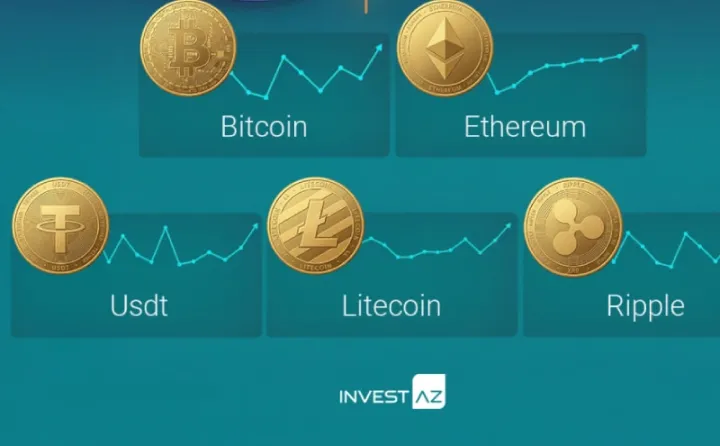
Kriptovalyuta ticarəti kursu
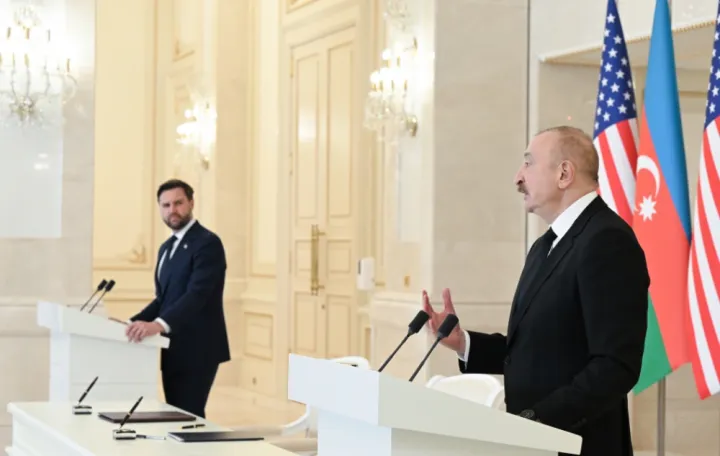
"TRIPP layihəsi Azərbaycana əlavə iqtisadi imkanlar yaradacaq"
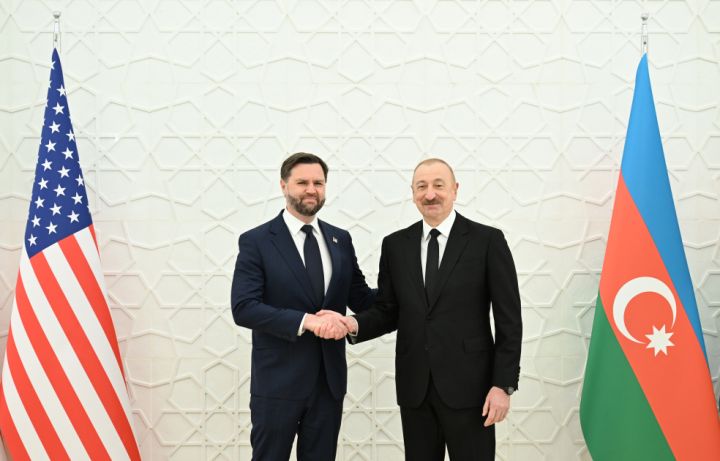
ABŞ-ın Vitse-prezidenti ilə məhdud və geniş tərkibdə görüş keçirilib

ABŞ-ın vitse-prezidenti Azərbaycana gəldi

Dövlət Vergi Xidmətinin baş idarə rəisi vəzifəsindən azad edilib
Ən çox oxunanlar

Dövlət Agentliyinin sədrinə yeni müavinlər təyin edilib

Dollların sabah üçün rəsmi məzənnəsi müəyyən olunub
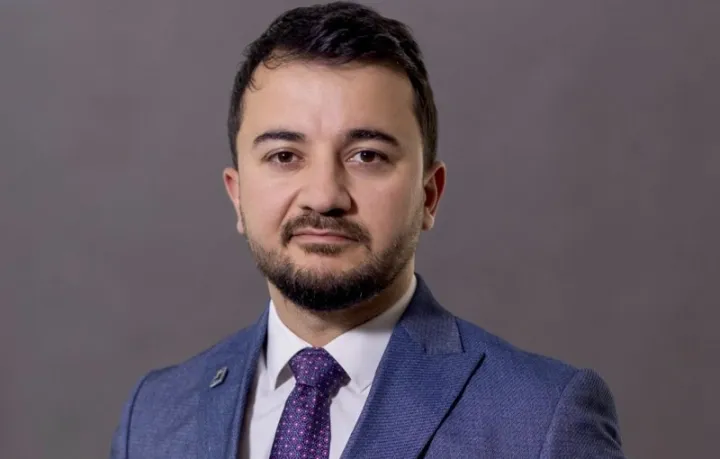
"CFI Financial İnvestisiya Şirkəti"ndə yeni təyinat

ABŞ-ın vitse-prezidenti Azərbaycana səfərə yola düşüb

Azərbaycanın pivə şirkətinin Gürcüstana ixracında böyük artım












